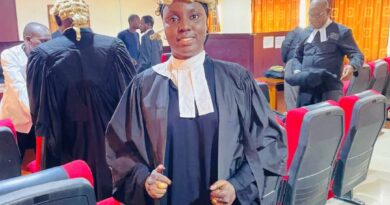Protest and the Danger of a Single Story
By Auwal Dankano
The long silence of believing in a single story was first broken by the famous Nigerian writer Chimamanda Adichie in an essay for a TED series program.
An average reader often accepts what they first read or hear from one source without seeking the other side of the story or another perspective.
In 1561, a London merchant named John Locke sailed to West Africa. In his account of the voyage, he described Africans as “beasts who have no houses” and wrote, “they are also people without heads, having their mouths and eyes in their breasts.” Thousands of white people died holding such an ugly and false imagination of Africa.
President Bola Ahmed Tinubu was elected and sworn into office a year and two months ago, with a well-written document titled “Renewed Hope.” He carefully outlined his government’s policies, including the removal of subsidies on Premium Motor Spirit (PMS).
Many believed that the fuel subsidy was a scam and had to be removed. This notion was accepted by everyone from fruit sellers to university professors, influenced by the single story concocted by those in power before Tinubu. The common man believed in it without considering the other side of the story.
As a matter of fact, fuel subsidy removal has become a permanent fixture, used by every government as a tool for future planning. If we had carefully considered the other side of the story, we might have avoided labeling it a scam.
Another negative aspect of a single story is university autonomy. We were told that when our universities became autonomous, learning facilities would be provided, and a conducive atmosphere would be created. Now that they are autonomous, our universities have recorded very low enrollments. We feel the pain of this autonomy and are only being saved by the student loan fund initiated by the present government.
It is impossible to discuss the danger of a single story without mentioning Bola Tinubu’s tenure as the Governor of Lagos State. During his term, he transformed Lagos into a revenue powerhouse, providing infrastructure like a mini Dubai. We elected him to replicate this success for Nigeria, but we failed to consider the sacrifices Lagosians made to improve their state.
Some segments of Nigerian youth are planning to embark on a hunger strike. They are only aware of the positive impact of the protest and should consider the stories of Libyans, Syrians, Sudanese, and now Kenyans.
We can only be successful when we reject the single story, realizing that there is never just one perspective. Only then will we reach the promised land.
Auwal Dankano wrote from Kano,
malamdankano@gmail.com




